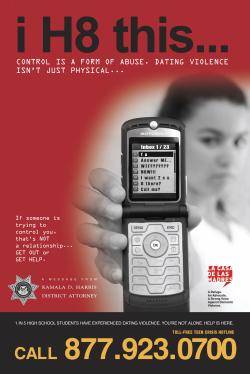Here’s some food for thought: some information on domestic violence among teenagers and college students that I found while combing through today’s coverage of the George Huguely V trial:
- About one in three high school students have been or will be involved in an abusive relationship.
- Forty percent of teenage girls ages 14 to 17 say they know someone their age that has been hit or beaten by a boyfriend.
- In one study, from 30 to 50 percent of female high school students reported having already experienced teen dating violence.
- Teen dating violence most often takes place in the home of one of the partners.
- In 1995, 7 percent of all murder victims were young women who were killed by their boyfriends.
- One in five or 20 percent of dating couples report some type of violence in their relationship.
- One of five college females will experience some form of dating violence.
- A survey of 500 young women, ages 15 to 24, found that 60 percent were currently involved in an ongoing abusive relationship and all participants had experienced violence in a dating relationship.
- It is estimated that between 20% to 52% of high school and college age dating couples have engaged in physical abuse.
(source: Bureau of Justice Special Report: Intimate Partner Violence, May 2000)
These numbers confound me and overwhelm me. And they sadden me. This is too many …
George Huguely V is being tried for first-degree murder in the death of Yeardley Love, and the trial is raising questions and, more importantly, dialogue regarding domestic violence among high school and college-aged students. It’s something that doesn’t seem to come up, or if it does, it’s an awkward dialogue. And any situation involving domestic violence begs the question: “Is it possible to ask for help?”
Lea Calvani, who works at a Charlottesville, Va., help center and shelter for victims of domestic violence, told a Virginia television station this:
“Statistically it takes a woman 7 and a half to 12 times to leave her partner before she leaves for good. I think that one as a general community, I think we always have kind of the assumption well she should just leave the relationship and unfortunately it’s really not that simple.”
If you’re a victim, are you trapped? No. Absolutely not. Even if you’ve dismissed your boyfriend or girlfriend’s physical threats or you’ve found a way to justify the abuse, there’s a means to breaking the cycle.
But what do you do if you witness it? Do you take it seriously if your friend’s boyfriend hits her? Or if your best friend’s girlfriend sends him a text message threatening to kill him? Do you attempt to run interference? Do you take a picture or shoot video with your cell phone camera for proof? Do you forward that text to someone else? Do you call the police?
Do you – gasp! – cause a scene?
At the risk of patronization … maybe you should. Because there’s no reason to continue to enable that kind of behavior and to condone the attitude that this is all OK. Because it’s not.
Frankly, if this would have happened to a girl I went to high school or college with – or to a boy – I hope to a higher power that one of them would have had the courage to tell the world.
Or did they ever?
